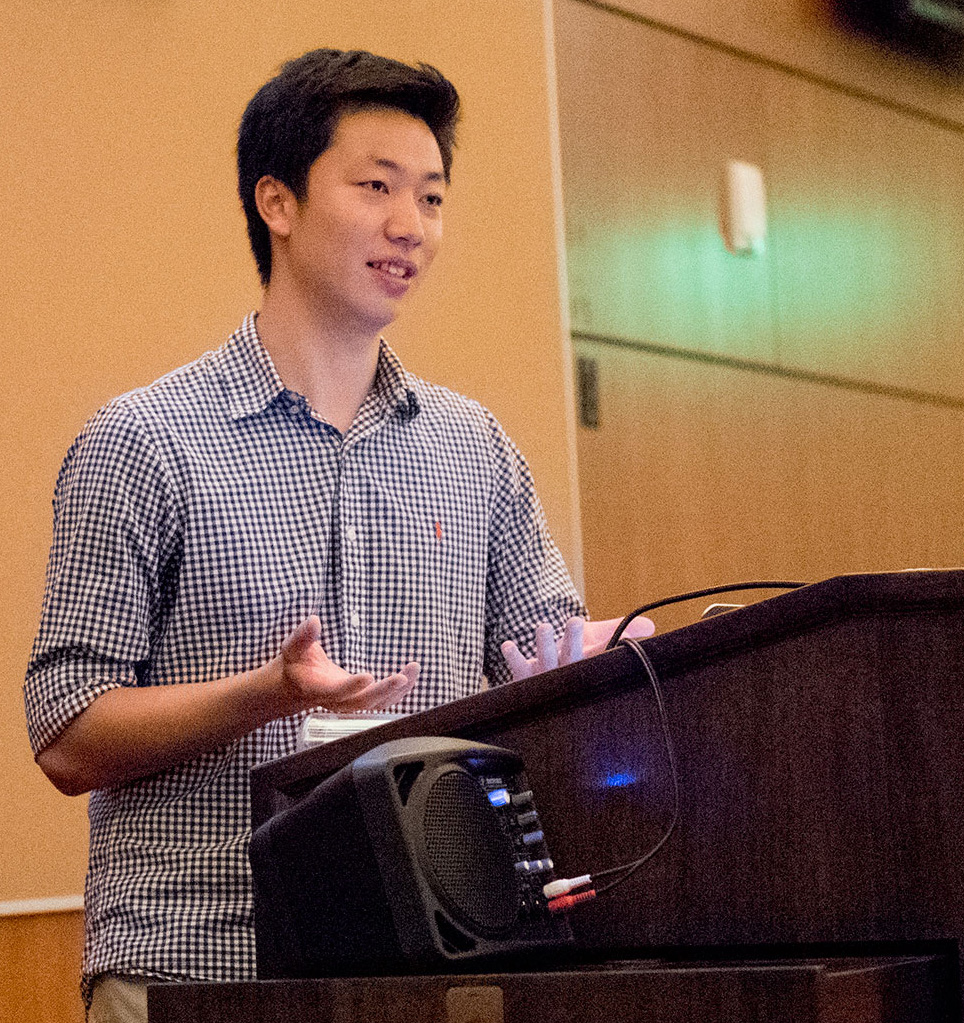PSA discusses new trade agreement

Fair trade · Shawn Ren, assistant director of PSA, gave students an overview of the Trans-Pacific Partnership Monday. – Mariya Dondonyan | Daily Trojan
The Political Student Assembly and Undergraduate Student Government Program Board hosted a discussion and a debate about the Trans-Pacific Partnership on Monday night.
In June, a Trade Promotion Authority bill was passed that would allow Congress to conduct a fast-track vote on any trade legislation, including the Trans-Pacific Partnership.
“It allows the president to force Congress to vote on a [trade] bill with limited debate time and no amendments, so they can’t filibuster and take forever to vote on it,” said Shawn Ren, assistant director of PSA, who led the discussion.
This partnership will essentially open up trade among 12 different countries, which includes Australia, Canada, Japan, Malaysia, Mexico, Peru, United States, Vietnam, Chile, Brunei, Singapore and New Zealand.
“Each of these countries will vote in their own legislatures to ratify this partnership by 2016,” Ren said. “The official goal was to enhance trade and investment among the TPP partner countries to promote innovation, economic growth and development and to support the retention and creation of new jobs.”
There are two objectives that this partnership hopes to accomplish.
“One [objective] is to lower tariffs across all TPP countries so that there is increased trade between those countries and two is to establish something called an Investor-State Dispute Settlement mechanism,” Ren said. “This mechanism will allow foreign investors to sue a country if that country passes a law that violates the trade agreement.”
TPP will regulate a vast variety of goods and services that will be traded across different nations.
“If it passes, it will regulate everything from the automotive industry, to IP law and to sanitary standards of food,” Ren said. “That’s how big it is. It is going to affect everything.”
Many support the bill, arguing that it will allow unencumbered, free trade among nations and create many jobs.
The Investor-State Dispute Settlement mechanism has come under criticism by both Republicans and Democrats due to its complexity and the fact that international lawyers will arbitrate investment conflicts without the use of the respective country’s judicial system. Ren showed a video in which Sen. Elizabeth Warren attacked the bill because of this provision.
“The name may sound mild, but don’t be fooled. Agreeing to ISDS in this enormous new treaty would tilt the playing field in the United States further in favor of big, multinational corporations,” Warren said in the video. “Worse, it undermines U.S. sovereignty.”
This provision of the partnership will give lawyers the power to dictate American law without actually stepping foot in an American court.
“It forces the U.S. to change their laws because they do not want to get fined [by these international lawyers],” Ren said. “In some ways, other third parties are affecting the U.S. law, which a lot of people do not like.”
Ren also showed a video of Sen. Bernard Sanders’s opinion regarding the TPP, which centered around the loss of American jobs and the power of corporations.
“If you are a big corporation, why are you going to pay an American worker $15 or $20 an hour and provide decent benefits and obey environmental laws, when you could shut down here, go to China, pay people very low wages and bring your products back in America,” Sanders said. “The TPP is a new easy way for corporations to shut down in America and to send jobs abroad.”
Following the brief overview of the partnership given by Ren, the floor was opened up for discussion among the students in attendance.
The main debates were whether or not the TPP should be implemented, whether corporations should pay outsourced labor at wages that can many times be less than the equivalent of one dollar and the necessity of industrial development for developing nations and the negative consequences associated with such.
“I’m definitely for the TPP primarily because I think that a lot of economists agree that when you have more free trade countries tend to be more peaceful,” said Jonathan Gunn, a junior majoring in economics and philosophy. “The TPP will be a force of prosperity not only for the United States but also for the pacific region and create better relationships between countries.”
Gunn said students gained insight into this topic following the meeting.
“I think we had a really good discussion despite the fact that not many people are econ majors,” Gunn said. “But I think that people got the gist of what the treaty is about because it is something complicated that is going to affect everyone in this room somehow or other.”
The discussion was one of a weekly series.
“We wanted to combat political apathy on campus and educate the student body about political issues even with kids who don’t know much about politics and don’t take political science classes,” Ren said. “This was kind of a response to that.”
